*for clearer depiction of progress, percentages placed on a 25% scale*
*for clearer depiction of progress, percentages placed on a 25% scale*
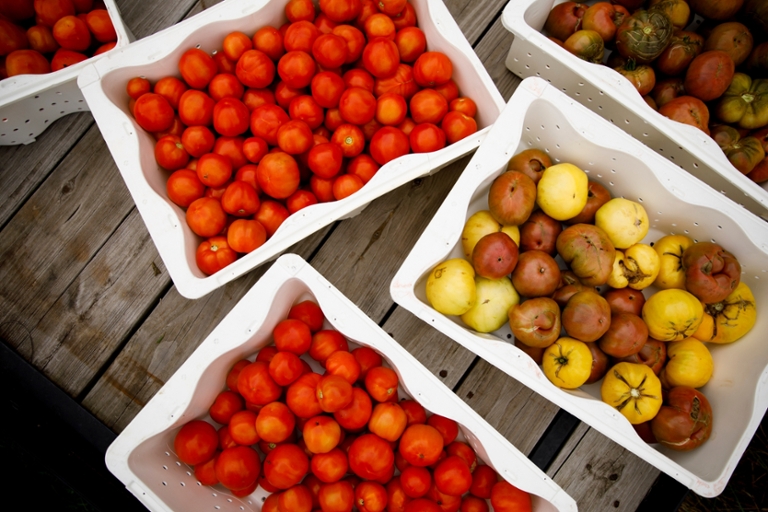
The Ostrom Workshop Program in Food and Agrarian Systems at Indiana University studies the social dimensions of food sustainability including culture, equity, and justice in food provisioning from local to global. Collaborations across campus meet the need for systems level research to address complex social-ecological systems.
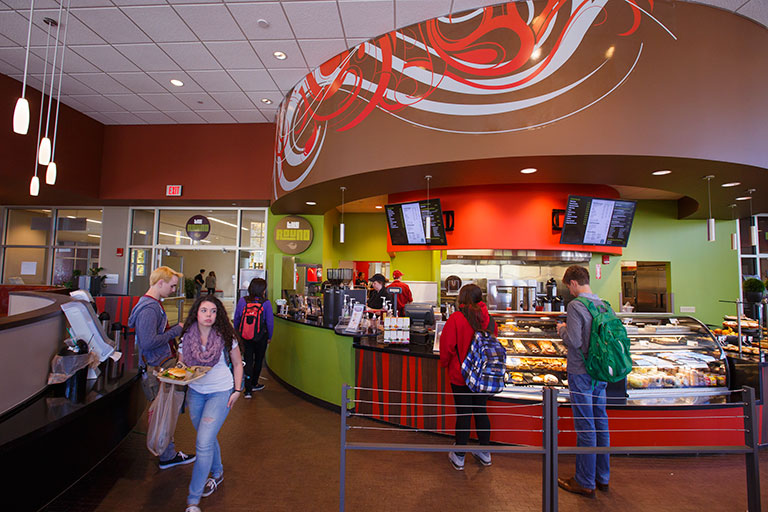
IU Dining is working to increase the amount of food sourced locally and responsibly, as well as reduce the amount of food waste on campus.
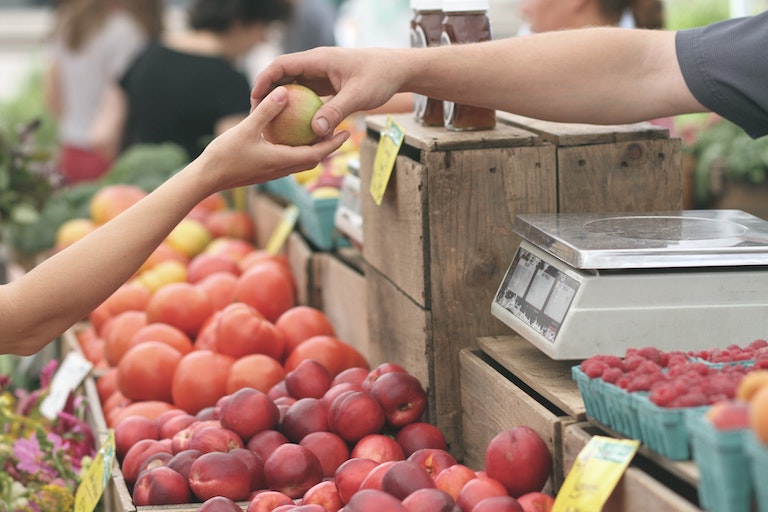
The Center for Rural Engagement is working with IU students, faculty, and staff to collaborate on issues facing rural communities in Indiana. Through research, teaching and service, the CRE seeks to address a wide range of challenges, "from addiction to the arts."
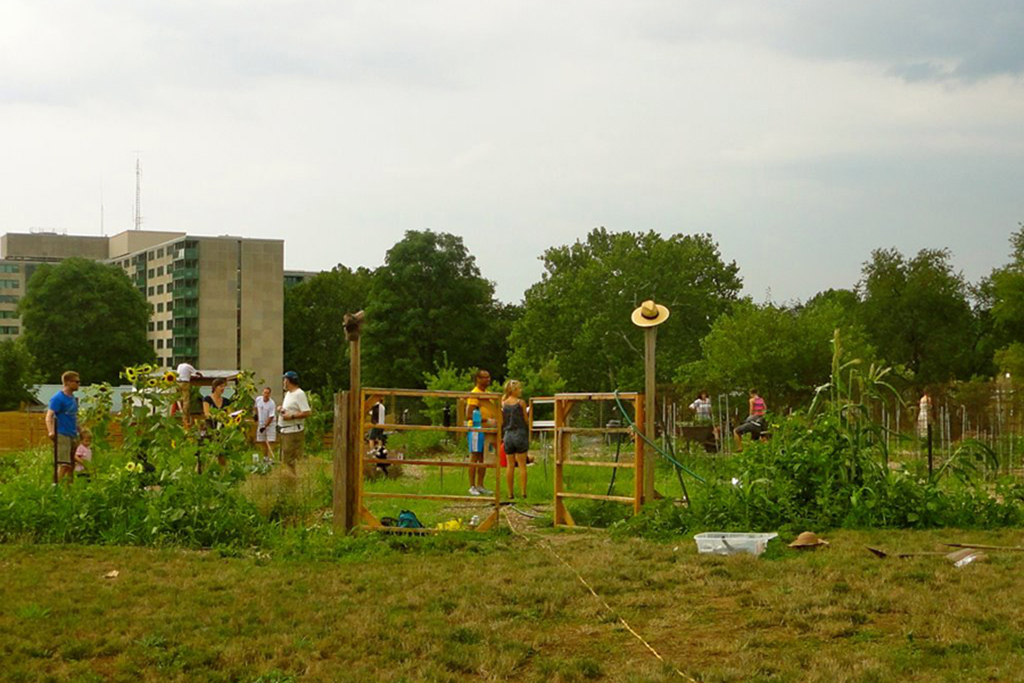
Hilltop Garden and Nature Center serves as an educational and recreational resource for youth gardening, Indiana University students and staff, and the surrounding community to learn about gardening and to connect with nature.
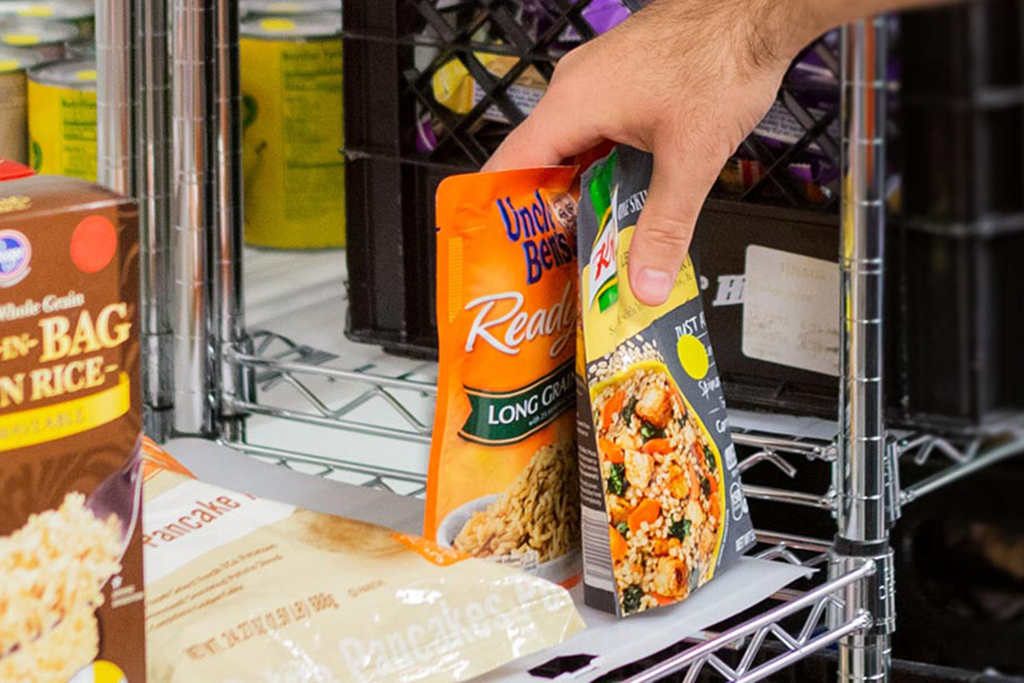
Crimson Cupboard offers free healthy food to IU Bloomington students who are struggling with food insecurity. Stocked by donations and staffed by volunteers, this special food pantry lessens the effects of poverty and food insecurity in our community.
At the intersection of social and environmental sustainability, our food system has widespread impacts on people, animals, and natural resources.
Campus Kitchen at Indiana University aims to reduce food waste and student food insecurity on IU Bloomington’s campus.
Team of students from all majors are working to make IU a Fair Trade designated university.
FED at IU is a student organization dedicated to educating IU students about cooking (both healthy and indulgent), and about the food system as a whole, with emphasis on local and sustainable systems.
Healthy IU provides educational and environmental resources to foster individual wellbeing and support a culture of wellness in the workplace and beyond.
The Indiana University Student Government (IUSG) is the student body government at Indiana University Bloomington.
IU's vegan and vegetarian society.
Union Board is the governing body of the Indiana Memorial Union and the largest student programming organization on campus.
![]()
Eat plant-based foods

Support local producers
![]()
Join a student organization
or become an intern

Purchase sustainable food on campus
IU Bloomington Sustainability
Office of Sustainability
E-House
704 E. 10th Street
Bloomington, IN 47408
Phone: 812.855.9195
sustain@iu.edu